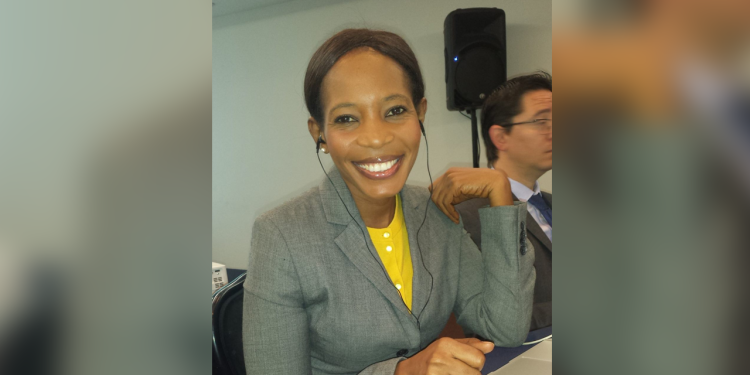Antigua and Barbuda has made a strong case for inclusion when decisions regarding the deployment of Artificial Intelligence are being made.
The case was made Thursday by the National Focal Point and Crowne Counsel, Andrea Jacobs, at the 34th Session of the Commission on Crime (Prevention and Criminal Justice (CCPCJ) Frontier Technologies and Criminal Justice at the United Nations Vienna Office.
“We want a seat at the table—not as passive recipients of standards drafted elsewhere, but as active shapers of systems that will affect our people, our economies, and our sovereignty,” Jacobs demanded.
She noted that as a Small Island Developing State, Antigua and Barbuda understands both the promise and the peril of technology. “Our size does not insulate us from digital threats. It makes us more vulnerable. Cybercrime respects no borders. AI doesn’t wait for infrastructure gaps to be filled. And if international norms are not inclusive, we risk deepening the global digital divide in ways that disproportionately harm states like ours,” she emphasized.
Jacobs noted however, that there are opportunities that come with AI.
“With proper legal safeguards, regional collaboration, and responsible innovation, frontier technologies can help reduce backlogs in our courts, increase access to legal aid, improve forensic accuracy, and enhance accountability.
“That resolution—GA Res. 78/241—reflects a new era in multilateral engagement on digital transformation. It recognizes that artificial intelligence can be a force for development, transparency, and for human flourishing—but only if it is governed wisely, inclusively, and ethically,” she observed.
She added that this is why Antigua and Barbuda is not there just to raise concerns, but to demand action.
“We are calling for AI governance to be firmly embedded in international discussions—not just as a matter of ethics or innovation, but as a matter of justice, accountability, and human rights.
“We must move beyond voluntary principles and lofty declarations. We must operationalize AI compliance,” she stated.
That means:
- Defining who is responsible for what;
- Creating independent oversight bodies;
- Enforcing precise accountability mechanisms;
- Upholding the right to contest algorithmic decisions;
- Guaranteeing the right to explanation, and the right to non-discrimination—especially when someone’s freedom, livelihood, or life is at stake.
“Self-regulation by tech companies is not governance,” she added, “Voluntary ethical frameworks without verification are not accountability. The silence of the Global South must never be mistaken for consent,” Jacobs reiterated.
Noting that Antigua and Barbuda is committed to being part of the solution the National Focal Point revealed that the country is actively participating in:
- International discussions on responsible AI;
- And we are finalizing our own National AI Policy.



